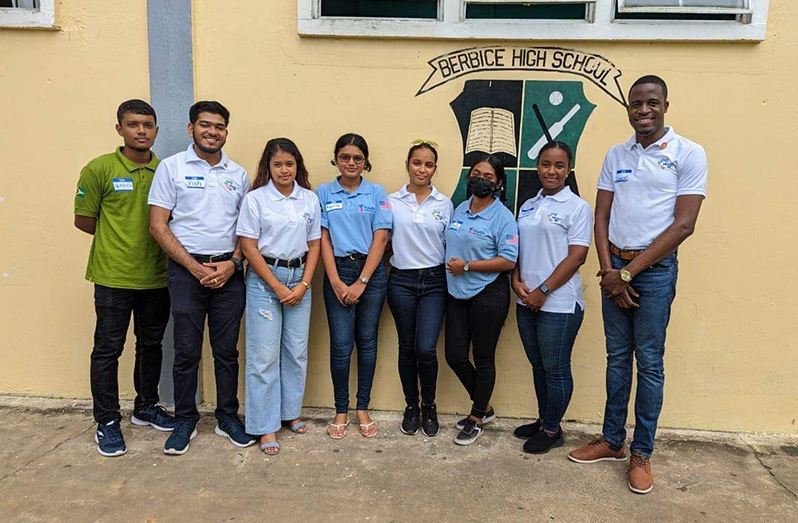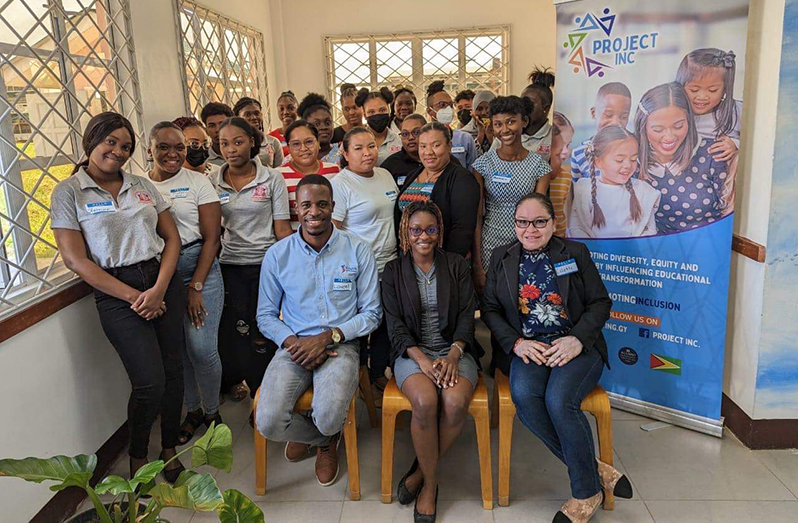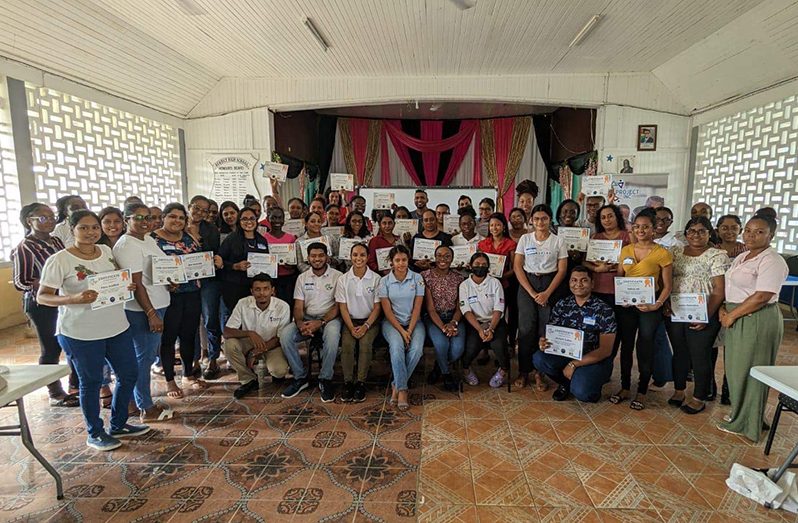By Marissa Foster
INCLUSIVE Education Project or “Project Inc” is aimed at raising awareness about intellectual disabilities among teachers and the public with the primary goal of ‘Promoting Diversity, Equity and Inclusion by Influencing Educational Transformation.’ Project Inc is funded by the U.S. Department of State through the Alumni Engagement Innovation Fund (AEIF). A group of Alumni of the U.S Embassy’s (Georgetown) Youth Ambassadors Program was granted this funding to implement a project targetting Inclusive Education across Guyana. The Alumni Engagement Innovation Fund (AEIF) is designed to increase the impact of the U.S. Government’s investment in exchange participants and programmes by helping alumni develop and implement projects that support U.S. foreign policy objectives, promote shared interests, and benefit local communities. With that in mind, Project Inc is specifically tailored and aimed to empower and equip teachers, education stakeholders and the public with the knowledge and skills needed to identify and respond to specific learning disabilities in a manner that will enable them to foster inclusivity in classrooms in Guyana.

The project is being implemented in phases. A social media campaign was launched to educate the public on inclusion and learning disabilities. Subsequently, workshops are being held for pre-service and in-service trainee teachers at the Cyril Potter College of Education (CPCE) and teachers from schools within Regions Six and Ten. Over the course of six months, 200 teachers residing in Georgetown, Berbice, and Linden will receive training in the aforementioned areas. The project team consists of seven team members who are all alumni of the Youth Ambassadors Program from various cohorts spanning 2015-2019. The team is being led by Youth and Community Development Specialist, Laurel Seales, who holds a wealth of knowledge in the areas of youth development, learning disabilities, and sustainable development. Other team members are rehabilitation specialist, Natisha Mookutnauth; rehabilitation specialist Sarah Dos Ramos; inclusive education advocate and teacher, Andre Ramaldo; Rhodes Scholar, Rawletta Barrow; C.X.C’s 2020 top CAPE performer, Brianna Gopie; C.X.C’s 2022 top CAPE performer, Mr. Vish Kistama; law student, Mia Barker and social media and marketing specialist, Raquel Meenkum.

“The underlying purpose of Project Inc. is to elevate the level of awareness of Guyanese teachers about the notion of an inclusive classroom and to provide support in the form of educational training on how teachers can create a more inclusive learning experience for all children under their care rather than use a more segregated approach to teaching and learning,” said Seales, Head of Project Inc. The project seeks to target approximately 5,000 persons through the use of marketing strategies such as; posters, videos, and a panel discussion, which highlights the need for inclusive education for students with learning disabilities in Guyana’s education system. They will also engage the Ministry of Education in discussions about broader structural considerations that will foster inclusion in the classroom and make accommodations for students with learning disabilities.

To date, Project Inc has successfully completed a two-day workshop at the Berbice High School, where they trained a total of 100 trainee teachers from the Cyril Potter College of Education (CPCE) and 60 trained teachers from across Berbice, Region 6. These teachers are now equipped with knowledge on how to identify and assist students with learning disabilities. When the Pepperpot Magazine asked what the future plans were for the project, Seales responded by saying, “Though the project focuses on inclusive education by addressing the needs of learners with learning disabilities, the team hopes to advance their mission by targetting issues related to educational inclusion that ensure equitable opportunities for all students to learn, contribute and participate in all aspects of school life”, he continued, “This goal will seek to reconfigure physical and social structures to welcome diversity (e.g., of abilities, culture, ethnicity and gender identity). Pending the removal of barriers, additional support may be required to ensure that all individuals’ rights to access and inclusion are respected”.





.jpg)








